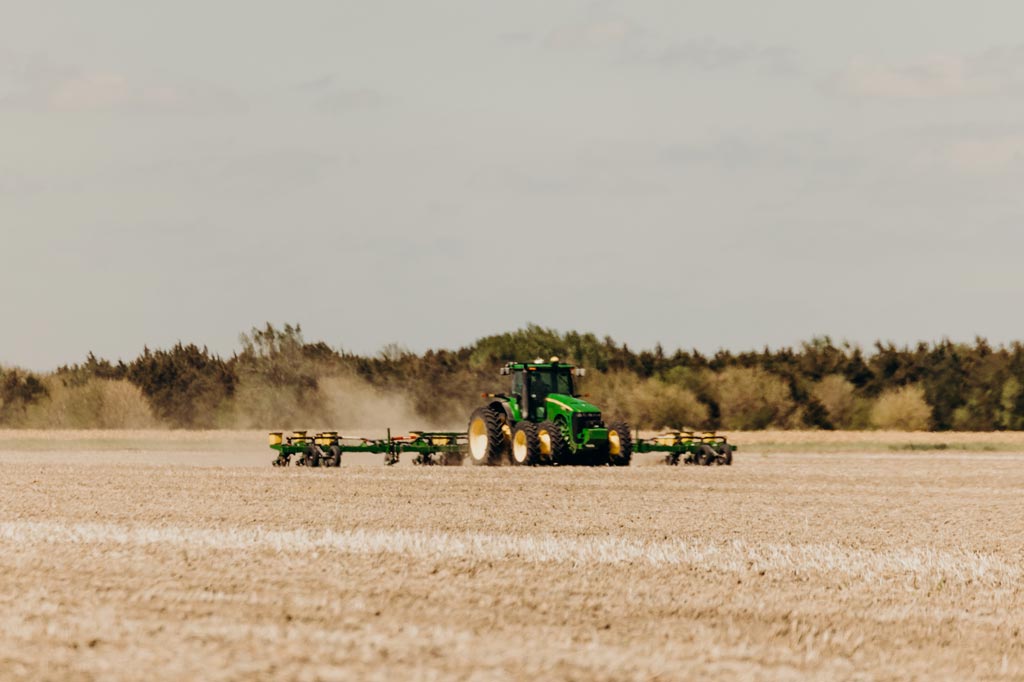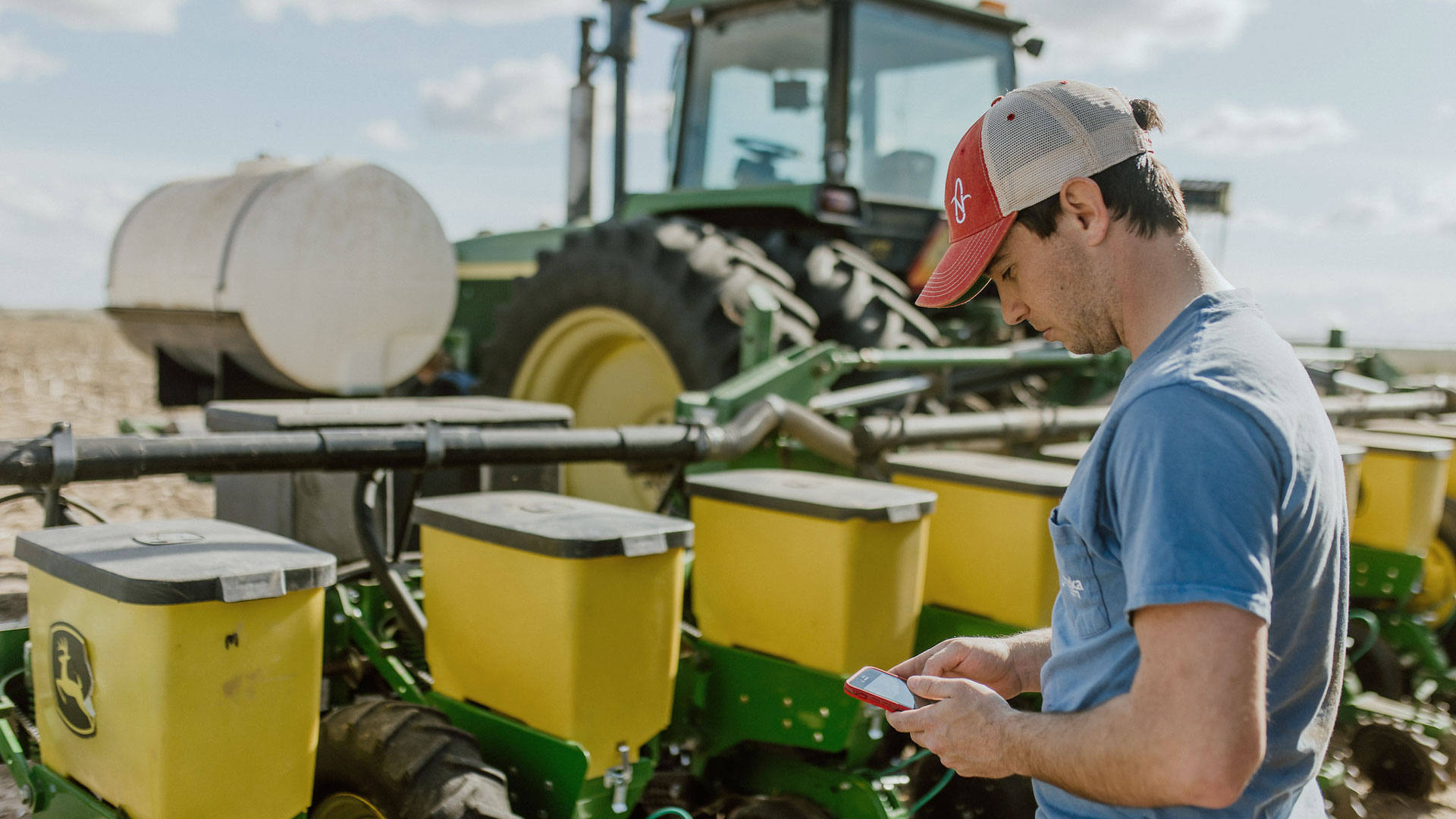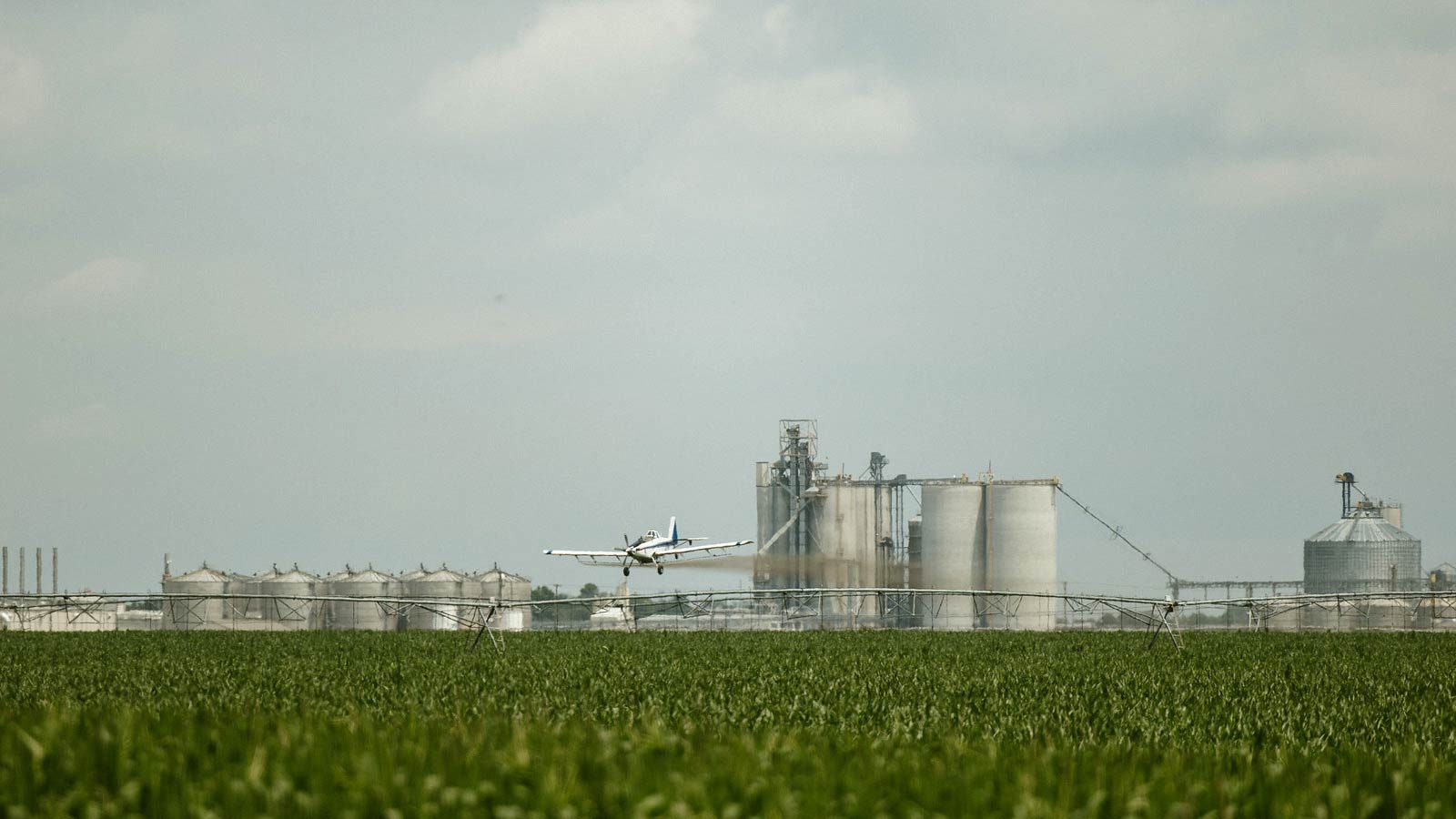Through advancements in technology, genetics and management, today’s farmers in Nebraska and across the country can grow more corn with less impact on the environment. That means they’re using less fertilizer, water and land than previous generations.
Farmers are advocates for sustainability and a healthy ecosystem. With generations before and generations to come, they understand its importance.
Their practices are helping transform sustainability in farming, which refers to a farm’s ability to maintain its production levels without depleting the natural resources it relies on. This can be achieved through a variety of practices, such as:
- Using more efficient irrigation systems
- Planting cover crops
- Rotating crops
- Minimizing pollution
Let’s review some of these practices in-depth.
1. Using Efficient Irrigation Systems to Conserve Water
In agriculture, irrigation is vital to crop production. It’s estimated that up to 70% of the fresh water used by humans goes to irrigation. With the world’s population projected to reach 9.6 billion by 2050 and changes in weather patterns affecting water availability, it is more important than ever to use irrigation water efficiently.
Today’s corn producers are growing more food while using irrigation 46% less than they were in the 1980s. How are they doing it?
One of the ways water conservation in agriculture is accomplished is through technology. Soil moisture monitors let farmers know how much water their crops really need. Through variable rate irrigation, farmers can determine how much water they need to apply in specific sections of their fields. Water is then only applied in necessary places.
In Nebraska, farmers can choose to be part of Aquamart, a farmer-led, field-level statewide water conservation initiative. Aquamart uses grassroots networking, precision technologies and best practices to create a blueprint for individual farmers to follow as they continually strive to improve their water management and on-farm profitability.
Livestock waste control systems are essential for preventing water pollution and promoting public health. These systems can also be a source of water for farmers to use on their fields, as well as contain nitrogen and phosphorus they can use to grow their next crop. This helps reduce the amount of fertilizer that’s needed.
2. Planting Cover Crops to Improve Soil Health

Using cover crops like grasses or legumes over the winter in Nebraska set farmers up for success in the upcoming planting season. They help in many ways, including:
- Reduce pests and weeds.
- Prevent soil from eroding or compacting.
- Retain moisture, nitrogen and carbon for future corn crops, which helps reduce the amount of fertilizer that needs to be applied.
There are various types of cover crops producers can plant, but some of the most common include cereal rye, annual ryegrass, clover and alfalfa. Each type of cover crop has different benefits, so farmers should select the ones that will best meet their needs.
3. Rotating Crops
Much like planting cover crops, rotating corn and soybeans helps improve soil health, prevents erosion and boosts yields.
This practice naturally returns nutrients to the soil without extra fertilizers and increases biomass, since corn and soybeans have differing root structures. Rotating crops also interrupts crop-specific pests and diseases.
If farmers don’t rotate crops, they may experience reduced crop yields and an increased need for synthetic fertilizers. This can lead to environmental problems such as water pollution and soil erosion. Crop rotation is an important agricultural practice that helps to sustain the environment and the economy for not only now, but in the future as well.
4. Using Technology to Reduce Pollution
One way farmers use technology to reduce pollution is by using precision technology. This involves sensors, global positioning systems and other types of technology to help farmers manage their crops more efficiently.
By reducing the amount of chemicals and water used on crops, farmers can minimize the amount of pollution that is created. Additionally, soil testing and sensors can help producers understand specific nutrient needs.
There is a lot of debate surrounding genetically modified organisms (GMOs). In farming, this term applies to plants that have their DNA altered through genetic engineering.
In the United States, GMOs are regulated by the FDA, EPA and USDA, which ensure their safety and monitor their impact on the environment.
There are several reasons why GMO corn is good for the environment.
Conserves Valuable Resources
GMO corn doesn’t need as much water as conventional corn. Here’s why:
- It’s often more resistant to drought conditions.
- Its roots tend to be deeper, helping it access water that would otherwise be out of reach.
- Some types have been modified to require less water for optimal growth.
Requires Fewer Pesticides and Herbicides
GMO corn is more resistant to pests, disease and weeds, so it doesn’t need as much pesticide or herbicide as conventional corn.
Some varieties have been engineered to express a protein called bacillus thuringiensis (Bt). This protein is toxic to certain insects that feed on corn, so it helps protect the plants from being damaged by pests. However, the FDA says Bt isn’t harmful to helpful insects, humans, pets, livestock or other animals.
Produces Higher Yields
GMO corn produces higher yields than conventional corn. As we mentioned earlier, it better resists pests, diseases and weeds, which can lead to higher overall plant health and greater yield potential.
Additionally, the precise nature of genetic modification may give corn plants a higher yield potential than its non-GMO counterpart.




